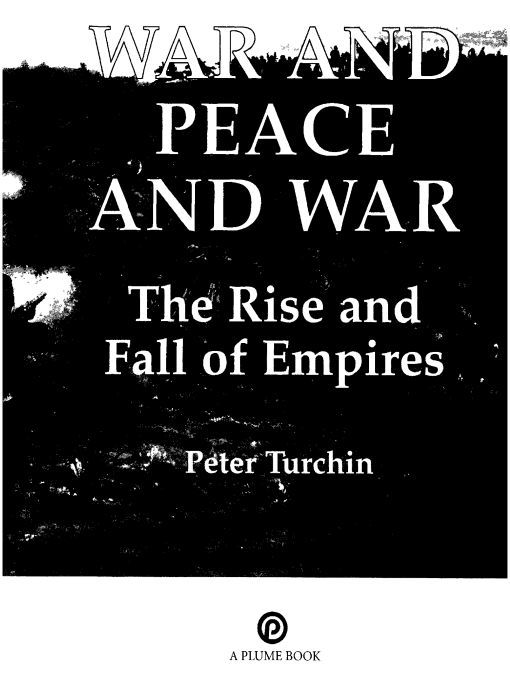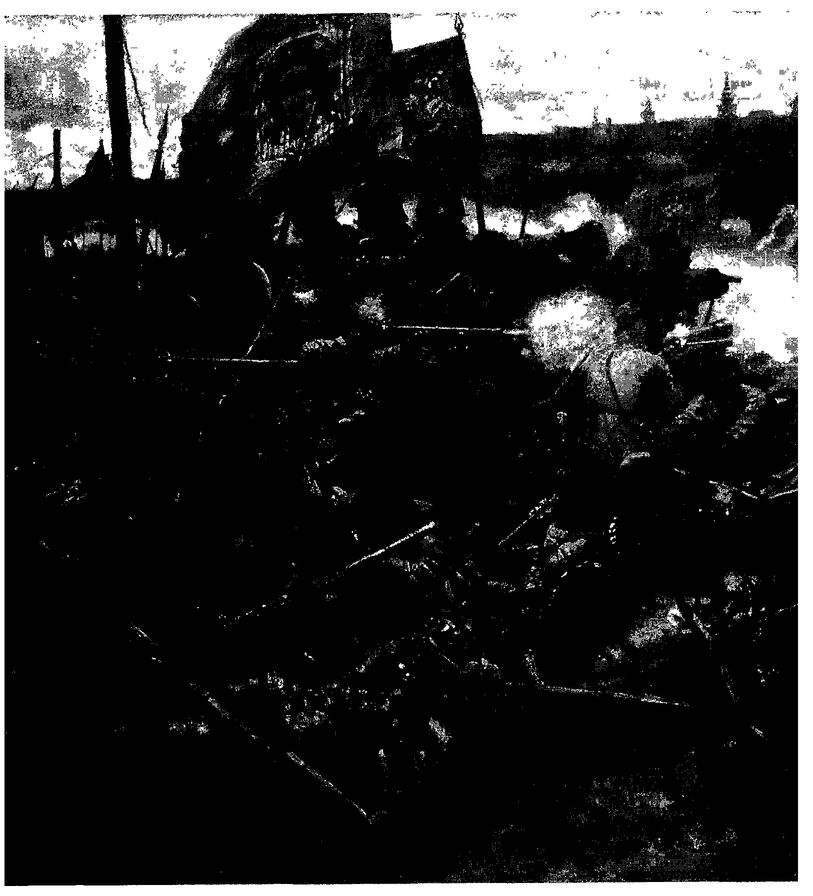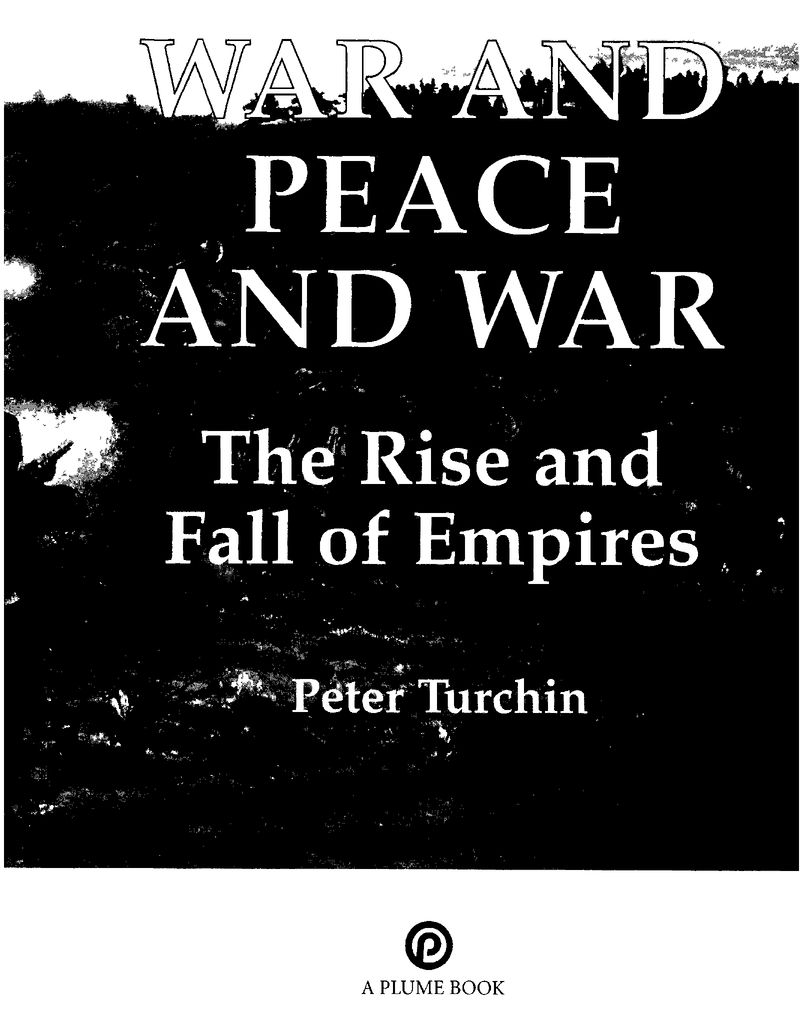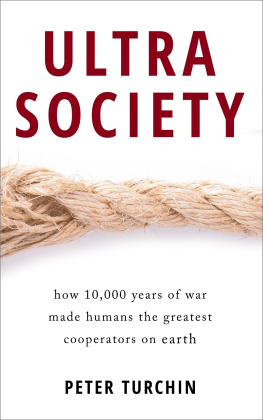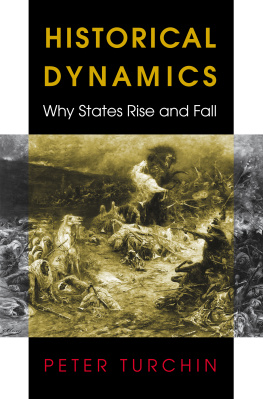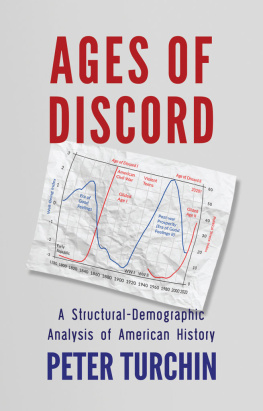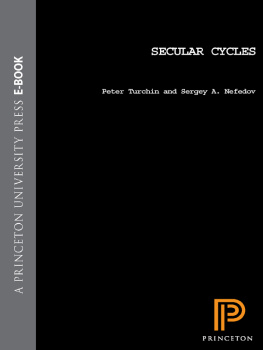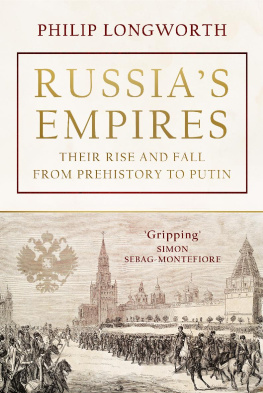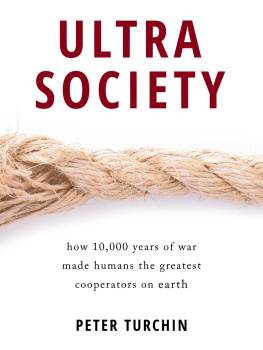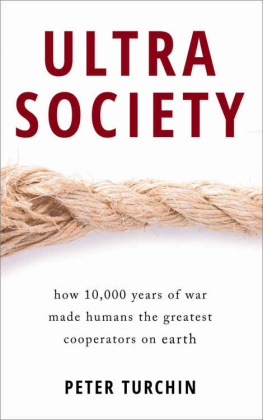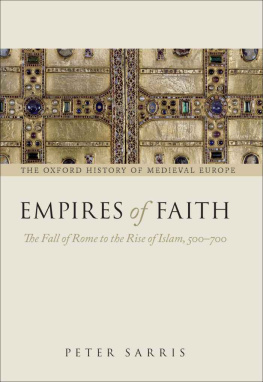Table of Contents
A PLUME BOOK
WAR AND PEACE AND WAR
PETER TURCHIN is a professor in the Department of Ecology and Revolutionary Biology at the University of Connecticut. He is the author of the technical work Historical Dynamics, in which he presents the statistical data behind the grand theory developed in War and Peace and War.
Many fascinating discussions of a wide variety of historical episodes, rendered in lucid, vigorous prose. The result, much in the vein of Jared Diamonds Guns, Germs, and Steel, is a stimulating revisionist overview of world history.
Publishers Weekly
This is a fascinating theory of world history, richly deserving professional respect and popular acclaim. It is both provocative and a pleasure to read.
Paul Seabright, University of Toulouse, author of The Company of Strangers: A Natural History of Economic Life
When Thomas Hobbes proposed his theory of the state in the seventeenth century, he set out a case for a rational science of politics that was variously deemed outrageous, blasphemous, cynical, ugly, and just plain wrong-headed. But the one thing they could not do about Hobbes was ignore him. Peter Turchins interpretation of imperial histories may likewise draw controversy, but it too cannot be ignored. His is a dazzling, provocative theory that deserves to be debated, dissected, and disputed by historians. It is an extremely timely reminder that history is not merely a narrative, but a process that unfolds with its own principles and logic.
Philip Ball, author of Critical Mass: How One Thing Leads to Another
Turchin [is] a leading light in contemporary evolutionary theory.... These insights Turchin now applies to human history.... He gives a thrilling account of the fluctuations in fortune in the buildup and subsequent decline of the Russian Empire, with generous quotations from contemporary chronicles, by detailing relations between Muscovy and the Crimea, between the Russians and the Tatars. He draws out in his underlying analysis the similarity between this long-lived historical example and the expansion of new Americans across a moving frontier. By far the largest part of the book is devoted to a case study, spread over a millennium, of the reasons for the rise and subsequent decline of the Roman Empire, and again this is done with fine simplification and panache. War and Peace and War is intended for the widest possible lay readership and aims to explain everything in narrative terms. Turchins prose is very catchy.
Gordon Johnson, president of Wolfson College, University of Cambridge, in the Times Higher Education Supplement
Here scientist Turchin ... takes on the apparent chaotic nature of history and through the prism of mathematical models and behavioral theories concludes that there are persistent cyclical historical patterns that he calls cliodynamics.... In many respects, Turchins vision of world history conflicts with Jared Diamonds view as expressed in the highly popular Guns, Germs, and Steel. His hypothesis promises to generate controversy.
Library Journal
TO OLGA
Introduction
So Peace Brings Warre and Warre Brings Peace
The empire has unified all the civilizations at last. After generations of battles, the last enemies have been defeated. Citizens of the empire can, it seems, look forward to permanent peace and prosperity. But a maverick mathematician named Hari Seldon has disturbing news. His new science of psychohistory, built from equations that integrate the actions of myriads of individuals, predicts large-scale social trends. When the equations are run forward, they foretell the decay and eventual collapse of the central power, rebellions by regional barons and rogue generals, and finally a bitter civil war that will transform the capital of the empire from a teeming metropolis of hundreds of billions into a ghost town with a few thousand survivors eking out a miserable living among the ruins. The decline and fall of the empire over the ensuing centuries unfolds precisely as the humble mathematician said it would.
This scenario from the Foundation trilogy of Isaac Asimov occurs in the future on the planet Trantor, the capital of a mighty galactic empire. In Asimovs fantasy, human history can be understood and predicted in the same way that physicists understand and predict the trajectories of planets, or biologists the expression of the gene. The key to the prediction of human societies is psychohistory, the branch of mathematics which deals with the reactions of human conglomerates to fixed social and economic stimuli. The ability of psychohistorians to make accurate forecasts, however, is not absolute. Psychohistory cannot accurately predict actions of a single individual. Furthermore, the knowledge of the prediction must be withheld from the people whose collective behavior is predicted. As Hari Seldon explains, By knowledge, your freedom of action would be expanded and the number of additional variables introduced would become greater than our psychology could handle. Prediction of human societies might also prove impossible for another reason: Complex dynamic systems are inherently unpredictable in the long run because of the butterfly effect. Small causes might produce large effects. For example, a butterfly fluttering its wings in Australia might cause a hurricane in the Atlantic. Or, as a childrens rhyme has it, For want of a nail... the kingdom was lost. Asimov, however, could not know about the butterfly effect because he wrote the trilogy in the early 1950s, before the discovery of mathematical chaos.
Asimovs trilogy captured the imagination of millions of readers, among them quite a few scientists and historians. However, his vision flies in the face of the view held by most professional historians and scientists, a view generally accepted in our culture. For centuries, philosophers have mulled over the prospects of a scientific study of history. Despite some dissenting voices, the consensus has been that scientific study of human societies is impossible because they differ too much from physical and biological systems. They are too complex. They consist not of simple identical particles, such as atoms and molecules, but of human individuals, each unique, endowed with free will, and capable of purposeful action. The verdict has been that any sort of scientific history must remain science fiction rather than a real science. And some might believe that this is for the best.
A science of history sounds cold and hardwouldnt it destroy our enjoyment of the wonderfully rich tapestry of the past? On a darker side, might not such a science enable some shadowy cabal to manipulate societies to a nefarious purpose? But have we ceased to enjoy the blue sky of a brilliant summer day, or the play of colors in a glorious sunset? After all, the physicists, beginning with Newton and ending with Einstein, worked out exactly how colors of the sky result from the interaction of sunlight with the atmosphere. As to the nefarious uses of a science of history, it is true that any knowledge can be turned to good or bad ends. But Asimovs notion of a Second Foundationa group of psychohistorians pulling the strings from some secret centerwas always the least credible part of his vision.

